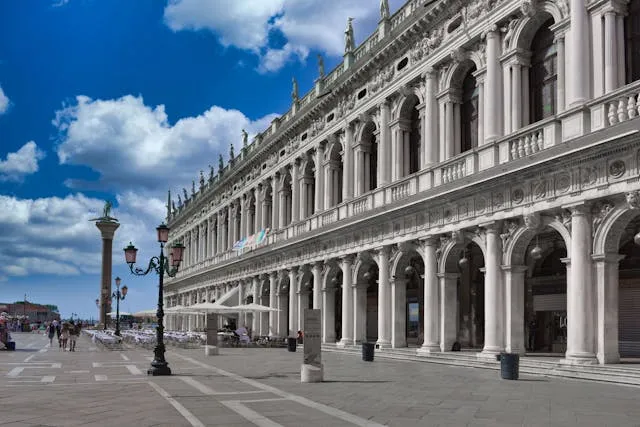Kerala, often referred to as “God’s Own Country,” is a region known not only for its picturesque landscapes but also for its rich cultural and spiritual heritage. One of the most profound ways to explore Kerala’s deep-rooted traditions is through a Kerala temple tour. The state is home to some of the most ancient, revered, and beautifully crafted temples, each offering a glimpse into the region’s history, rituals, and spiritual practices. For those looking to connect with the spiritual essence of India, a Kerala temple tour is a must.
What is a Kerala Temple Tour?
A Kerala temple tour is a curated journey that takes travelers through the state’s most famous and significant temples. These temples, spread across the lush landscapes of Kerala, are not just places of worship but also cultural landmarks that tell the story of the region’s rich history, diverse religious practices, and architectural splendor. From the tranquil atmosphere of ancient temples nestled in the hills to the grandeur of coastal shrines, a Kerala temple tour offers an immersive experience into the spiritual and cultural heritage of this unique region.
The tour typically includes visits to prominent temples such as the Sree Padmanabhaswamy Temple in Thiruvananthapuram, the Guruvayur Sri Krishna Temple, the Ettumanoor Mahadeva Temple, and the Vaikom Mahadeva Temple, among others. Each temple has its own unique story, architecture, and significance, making the tour a rich and diverse journey.
Why Go on a Kerala Temple Tour?
- Deep Spiritual Connection
For those seeking a deep spiritual experience, a Kerala temple tour offers an unparalleled opportunity to connect with India’s spiritual heritage. Many of Kerala’s temples have been standing for centuries, serving as centers of worship and devotion. The serene atmosphere, intricate rituals, and divine energy at these temples offer a space for reflection, meditation, and spiritual rejuvenation.
Visiting these temples not only provides a chance to witness age-old traditions and practices but also offers an opportunity for personal introspection. Whether it’s the mesmerizing chants of the priests, the scent of incense, or the serene ambiance of the temple grounds, each temple visit leaves a lasting impression on the soul.
- Architectural Wonders
Kerala temples are renowned for their unique and stunning architecture, which blends Dravidian, Kerala, and Indian temple styles. The structures are characterized by wooden carvings, sloping tiled roofs, detailed sculptures, and intricate paintings that depict various deities, legends, and mythological stories.
For instance, the Sree Padmanabhaswamy Temple in Thiruvananthapuram is famous for its impressive Dravidian-style architecture, which includes a 100-foot-tall gopuram (gateway tower) adorned with detailed sculptures. Similarly, the Guruvayur Sri Krishna Temple showcases traditional Kerala temple architecture with its beautifully carved wooden pillars and richly adorned sanctum.
The architectural beauty of these temples is not only a treat for the eyes but also a reflection of the region’s artistic traditions and craftsmanship.
- Cultural Immersion
A Kerala temple tour is an ideal way to immerse oneself in the cultural traditions of Kerala. Each temple visit offers insights into local customs, festivals, and rituals that have been practiced for generations. From the grand annual festivals like Onam and Vishu to the daily rituals such as temple processions, music, and dance performances, the cultural experience surrounding the temples is rich and diverse.
In some temples, travelers can also participate in cultural activities such as classical dance performances, where they can witness traditional art forms like Kathakali and Mohiniyattam. This gives visitors an opportunity to experience Kerala’s cultural richness while being part of the local spiritual celebrations.
- Historical Significance
Many of the temples in Kerala date back several centuries, some even to the 8th or 9th century, making them an important part of Indian history. These temples were not only places of worship but also centers of community life and learning. They often played a key role in the development of the region’s art, music, and literature.
For example, the Ettumanoor Mahadeva Temple, which is dedicated to Lord Shiva, is believed to be over 1,000 years old and is famous for its exquisite mural paintings and carvings depicting scenes from Hindu mythology. Similarly, the Vaikom Mahadeva Temple holds historical importance for its association with the Vaikom Satyagraha, a movement for social justice.
Visiting these temples offers a glimpse into the past and allows travelers to explore the historical context behind these sacred places.
- Healing and Wellness
Kerala is known for its wellness practices, particularly Ayurveda, which has been practiced for thousands of years in the region. Many of the temples are located in serene natural surroundings, offering a tranquil environment that enhances the sense of peace and well-being. This makes a Kerala temple tour an ideal complement to the region’s wellness offerings.
Ayurvedic centers, which are abundant in Kerala, often recommend visiting temples as part of a holistic wellness retreat. The calming effect of the temples’ surroundings and the meditative atmosphere make them a perfect place for rejuvenation and relaxation.
Key Temples to Include in a Kerala Temple Tour
- Sree Padmanabhaswamy Temple (Thiruvananthapuram) – Dedicated to Lord Vishnu, this temple is one of the richest and most famous temples in India, known for its stunning architecture and deep spiritual significance.
- Guruvayur Sri Krishna Temple (Guruvayur) – One of the most visited pilgrimage centers in Kerala, this temple is dedicated to Lord Krishna and is famous for its daily rituals and annual festivals.
- Vaikom Mahadeva Temple (Vaikom) – This ancient temple dedicated to Lord Shiva is famous for its historical significance and connection to the Vaikom Satyagraha, which was a fight for social equality.
- Ettumanoor Mahadeva Temple (Ettumanoor) – Known for its beautiful murals and intricate carvings, this temple dedicated to Lord Shiva holds a special place in Kerala’s temple architecture.
- Sabarimala Ayyappa Temple (Sabarimala) – Though it is a more remote temple, Sabarimala is one of the most revered pilgrimage sites in Kerala, attracting millions of devotees every year. It is dedicated to Lord Ayyappa and is known for its strict rituals and spiritual significance.
Conclusion
A Kerala temple tour is a journey that goes beyond sightseeing—it’s an immersive experience that offers a deep connection to the spiritual, cultural, and historical essence of Kerala. Whether you are seeking spiritual fulfillment, an appreciation for architectural beauty, or an insight into the region’s rich traditions, a temple tour in Kerala provides a unique and enriching experience. Each temple offers a different story and ambiance, making the journey not only a spiritual one but also a journey through time and culture. Embark on a Kerala temple tour and discover the profound spiritual heritage of this fascinating state.



